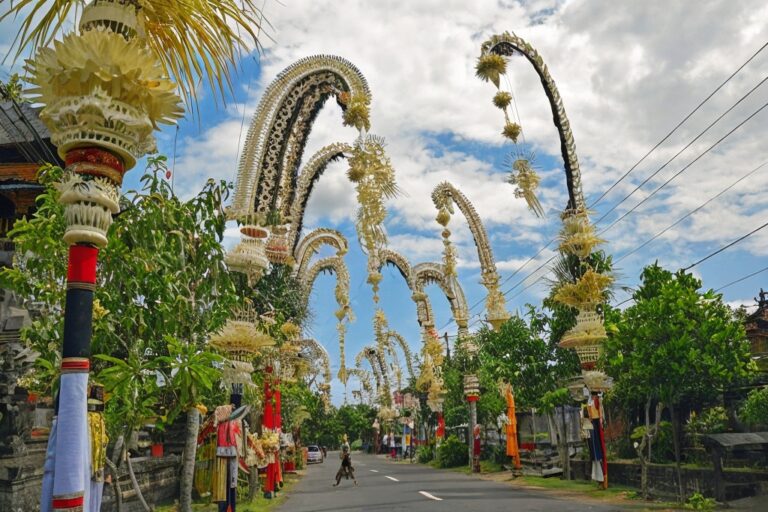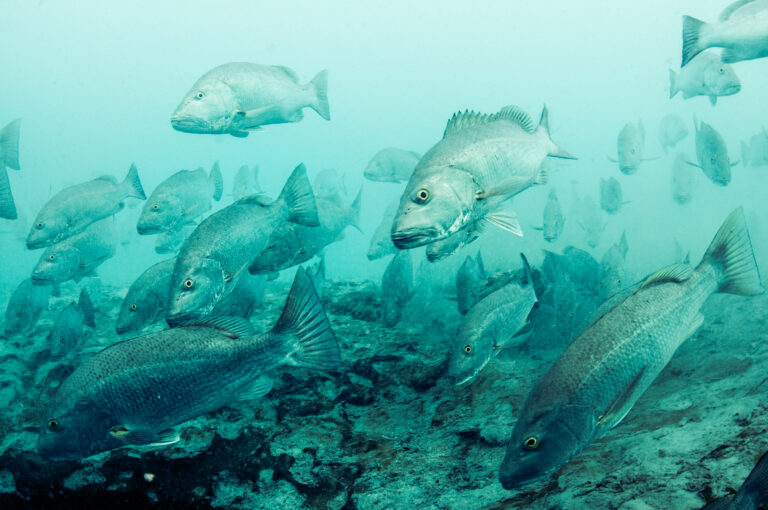Coming to Bali and worrying about running into a scorpion in your villa or on the street? Well, don’t be.
Most humans who visit Bali will never ever see a scorpion and if they do, the creature is at much more risk of harm from you than you are from it.
Our guide will introduce you to the main species here on the island and what to do when you do get venom injected into your skin.
For most tourists, scorpions here are a non-issue, mosquitoes are the number one non-human species that they need to be protected from.
The Three Scorpion Species Of Bali
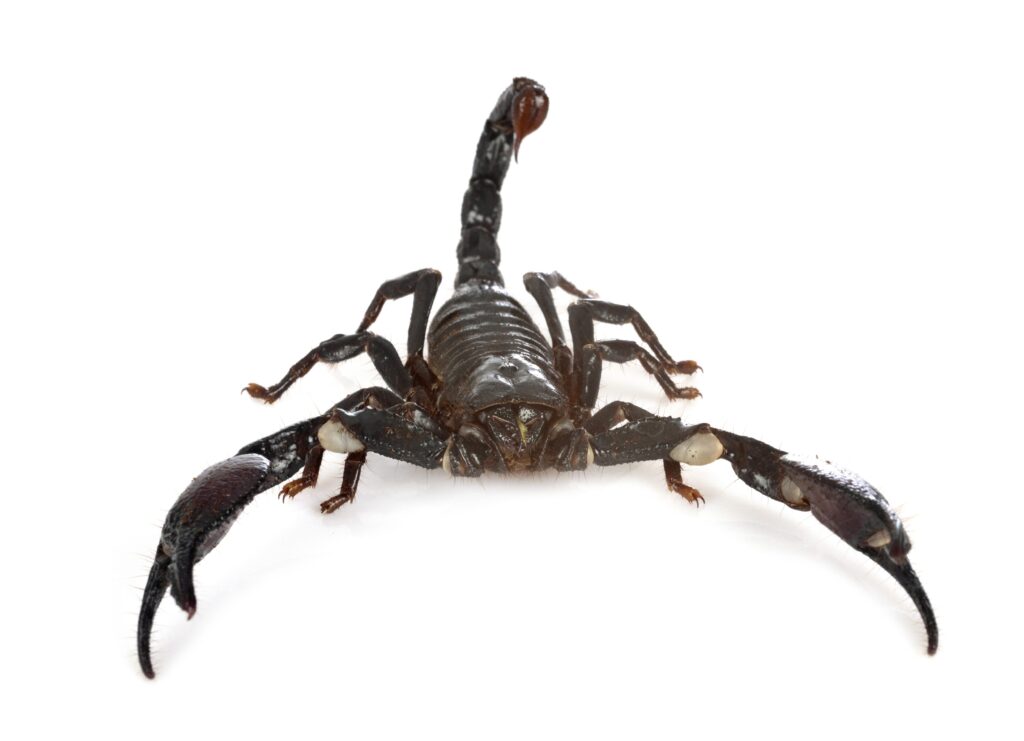
There are only three species of scorpion here in Bali and the best protection against all of them is to look where you’re putting your feet and hands when you’re out in nature.
The wildlife here in Bali, except for the occasional snake, is not overtly hostile and the snakes, insects, scorpion species, etc. are usually quite harmless as long as you leave them alone.
Bark Scorpions (Lychas Scutilis)
This scorpion is part of the Buthidae family of scorpions and many of its fellow family members are among the most dangerous and venomous scorpions on the planet.
Fortunately, bark scorpions are quite small (less than 7cm long) and while they are very hardy and can survive in almost any environment in Bali – they’re not particularly dangerous to people.
The sting is likely to be potent and may cause some swelling and pain but should be harmless unless a severe allergic reaction takes place (an epi-pen can help with this – but medical treatment is essential for any allergies from bites be it scorpions, snakes, spiders, ants, insects, etc.) and there’s no need for a doctor or hospital visit unless you think you’re at risk of real harm.
It’s not known how common this scorpion is on the island because it tends to hide from people and the data we do have, suggest that it tends to live a long way away from humans in harsh conditions.
This scorpion tends to come out at night, which reduces the chances of being bitten by one, again. It eats insects and small arthropods.
There’s no need to protect yourself against this species – even though the venom can cause real pain when injected into the skin, it’s just not common enough to consider on a day-to-day basis.
Dwarf Wood Scorpions (Liocheles Australasiae)
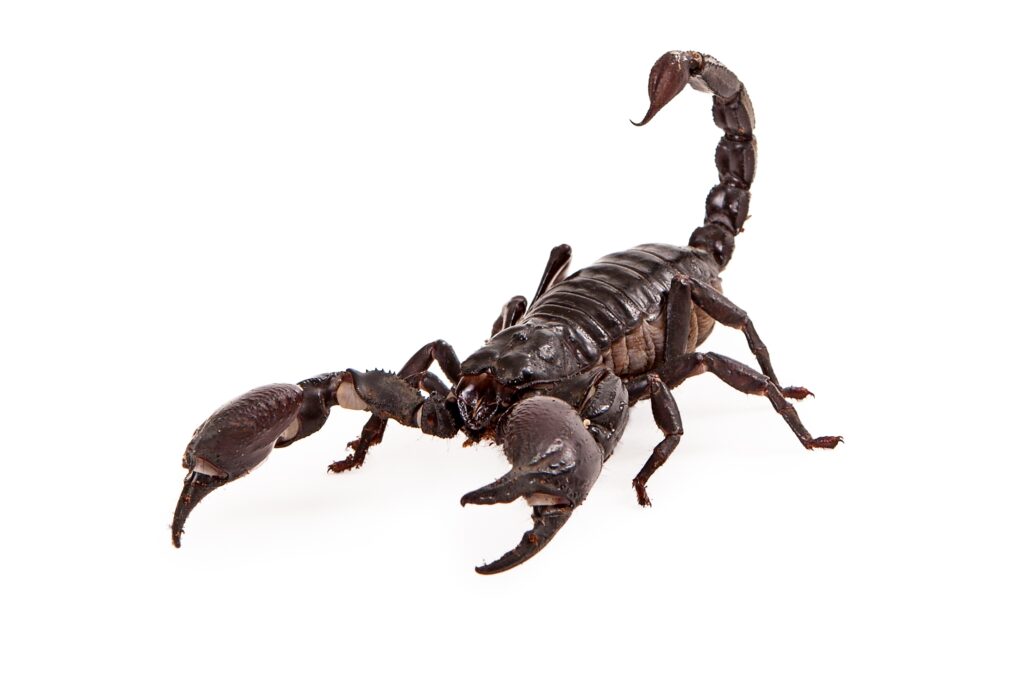
These scorpions can be found all over Australasia and Asia including in Bali. They’re super small (about 3 cm) in length and not a lot is known about them.
Their venom is no danger to people (or other mammals) and while it can cause a little pain and discomfort at the site of the sting, the reaction tends to be very much localized and never spreads to the rest of the body.
In some parts of Asia, such as Sri Lanka, you might have to be careful and check your floor, shoes, clothes, and house for these tiny critters but in Bali, you’re very unlikely to see one at all.
Most locals have never seen a Dwarf Wood Scorpion. They tend to live on the leaves of certain coconut tree species or on the forest floor.
Asian Forest Scorpions (Heterometrus Cyaneus)
The Asian Forest Scorpion and, in particular, the Asian Blue Forest Scorpion known as Javanimetrus cyaneus, can be found all over Indonesia, Borneo and the Philippines.
It’s the biggest species of scorpion in Bali, by far and you will find that it can grow to lengths of up to 15 centimetres.
They wander around on the ground in forest areas and are often found under stones or fallen trees.
They are not much of a threat to tourists because of where they hang out but it’s important to remember that they are “harmful” and their sting can cause quite severe pain. However, it’s unlikely to kill unless you are actively allergic to the venom.
However, it’s worth noting that if you use a general sense of caution in the forest, you will probably be lucky enough never to be stung by one in the first place.
Interestingly, the venom of this scorpion is used in an attempt to discourage would-be predators only, it doesn’t tend to sting its prey, instead, it crushes insects and arthropods to death in its claws.
What Happens When A Scorpion Stings Me? How Much Pain Will There Be?
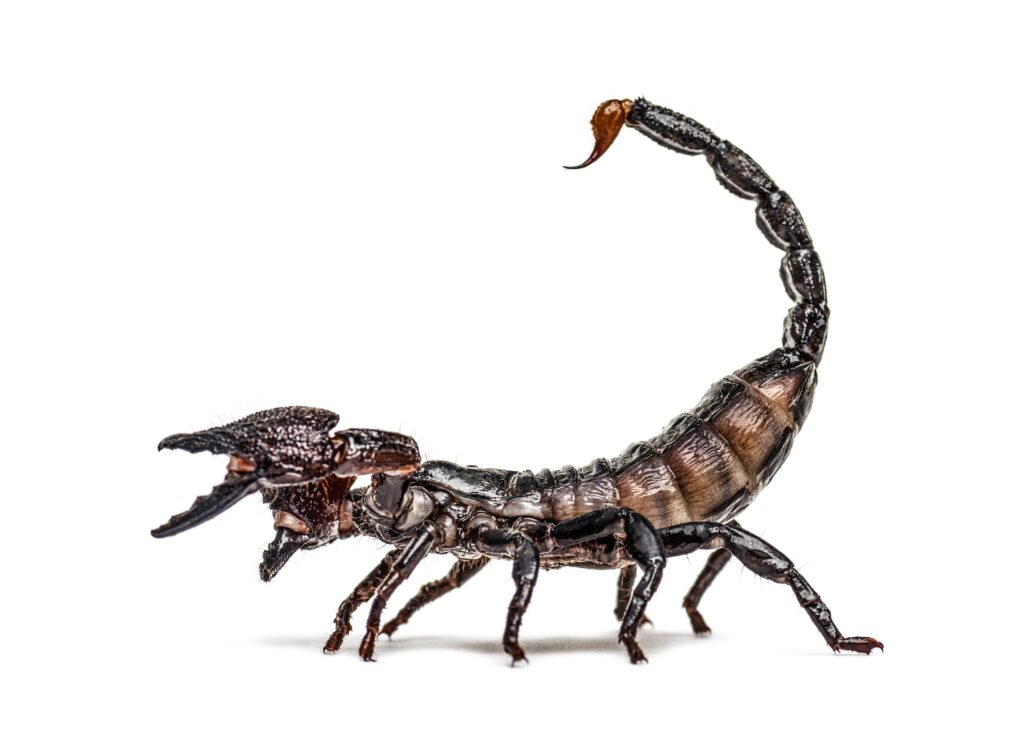
In the vast majority of cases, when a scorpion flicks its tail and you end up with a stinger in your skin, it won’t be much worse than a bee sting.
You will get a little redness at the site of the wound and some swelling and perhaps a burning sensation and some pain.
Indonesia sees almost no deaths due to scorpion venom and even in places where the scorpion venom is much stronger (such as the Middle East, Africa and South America) the risks of dying are minute.
There are an estimated 1.2 million bites each year from scorpions on people and they think around 3,000 people die from them. That’s a 0.25% chance of fatality, much much lower than from venomous snakes or spiders.
What To Do In The Event Of Being Stung?
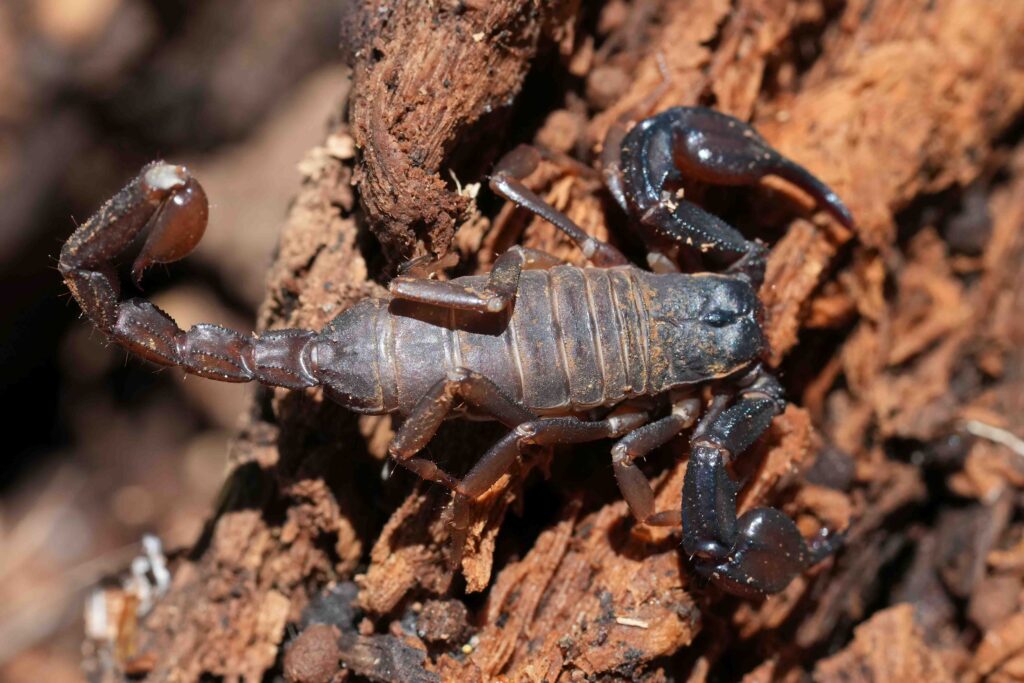
Firstly, there should be no need to call a doctor or go to a hospital in the event of a scorpion sting.
Once you’ve washed the wound, you should be able to treat the problem with some ice, elevating the affected part of the body, some pain relief (paracetamol or ibuprofen will do fine – there’s no need to roll out the big guns) and some antihistamines.
In 99.999% of cases, that’s all that it takes to ensure that the sting is no real problem.
If however, there are any signs of severe allergic reaction or potential anaphylactic shock, you should get a car immediately and take the affected person straight to a hospital.
If you have an epi-pen to hand, you can use this in the normal way to treat the allergic reaction, but you should still see a doctor to make sure there are no further complications.
Are Bali Scorpions Dangerous?
Yes! Bali scorpions are dangerous to the insects and arthropods that they eat, but they’re not a threat to you and your family.
While being stung is likely to be painful it’s no worse than being bitten by ants or stung by bees and even a baby is at no real risk of any serious reaction to the venom.
However, there are very few people who have strong allergic reactions to the venom and they should be taken immediately to a hospital to seek medical treatment.
Everyone else can follow the simple steps above to ensure they are protected from their body’s reaction to the venom.
What Types Of Scorpions Are In Bali?
There are just three types of scorpions to be found in Bali: Bark Scorpions, Dwarf Wood Scorpions and Asian Forest Scorpions.
There are very small creatures that tend to live in the forest or as far away from people as possible.
Most of them hunt at night and you’re unlikely to find them in your house, clothes or shoes. So, there’s no need to check each night for any sign of these creatures.
How Dangerous Is The Scorpion?
Scorpions are lethal to the creatures that they prey on but most are not very dangerous to people.
The most deaths relating to these creatures occur in the Middle East, Africa and South America where the most venomous species occur.
Here in Bali, your odds of dying from a scorpion attack are so minimal that it’s not worth considering.
Monkeys, stray dogs, mosquitoes, and snakes are all bigger issues for visitors and the vast majority of people who come to Bali return home in exactly the same state of health as they arrived in.
How Poisonous Are Australian Scorpions?
There is not one single recorded death from a scorpion sting in Australia. So, while we have to point out that scorpions are venomous, not poisonous, the Australian ones are not very venomous at all.
Where Do Most Scorpion Deaths Occur?
Most scorpion deaths occur in Africa, the Middle East and South America where they are found on the ground and often can even get inside a good home during the day.
Even there, however, the odds of dying from a scorpion sting are minimal.
There are scorpions here in Bali but they’re unlikely to bother you on your holiday and even if you were really unlucky, the odds of anything serious happening are minimal.
Mosquitoes, on the other hand, are a much bigger problem and taking steps to prevent bites makes perfect sense as dengue is quite common in Indonesia.
Read more about other animals in Bali here: https://finnsbeachclub.com/category/guides/other/animals/







